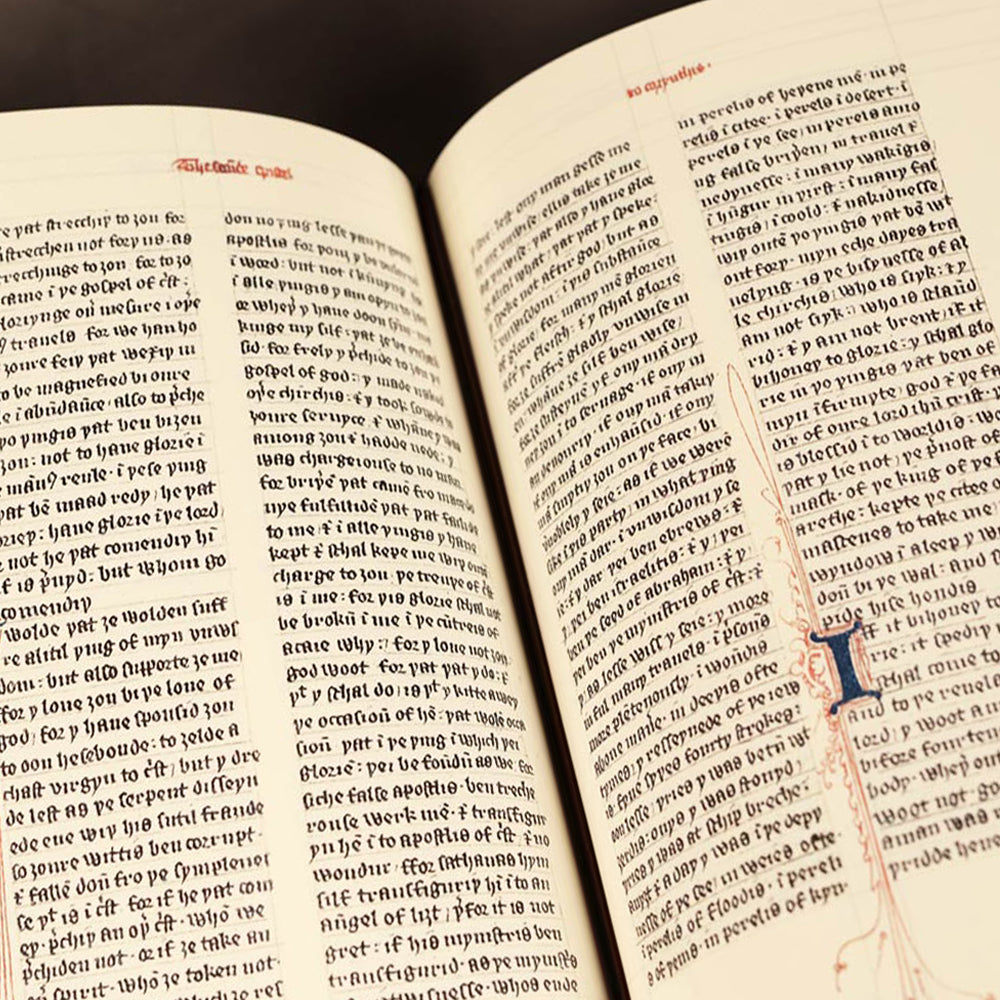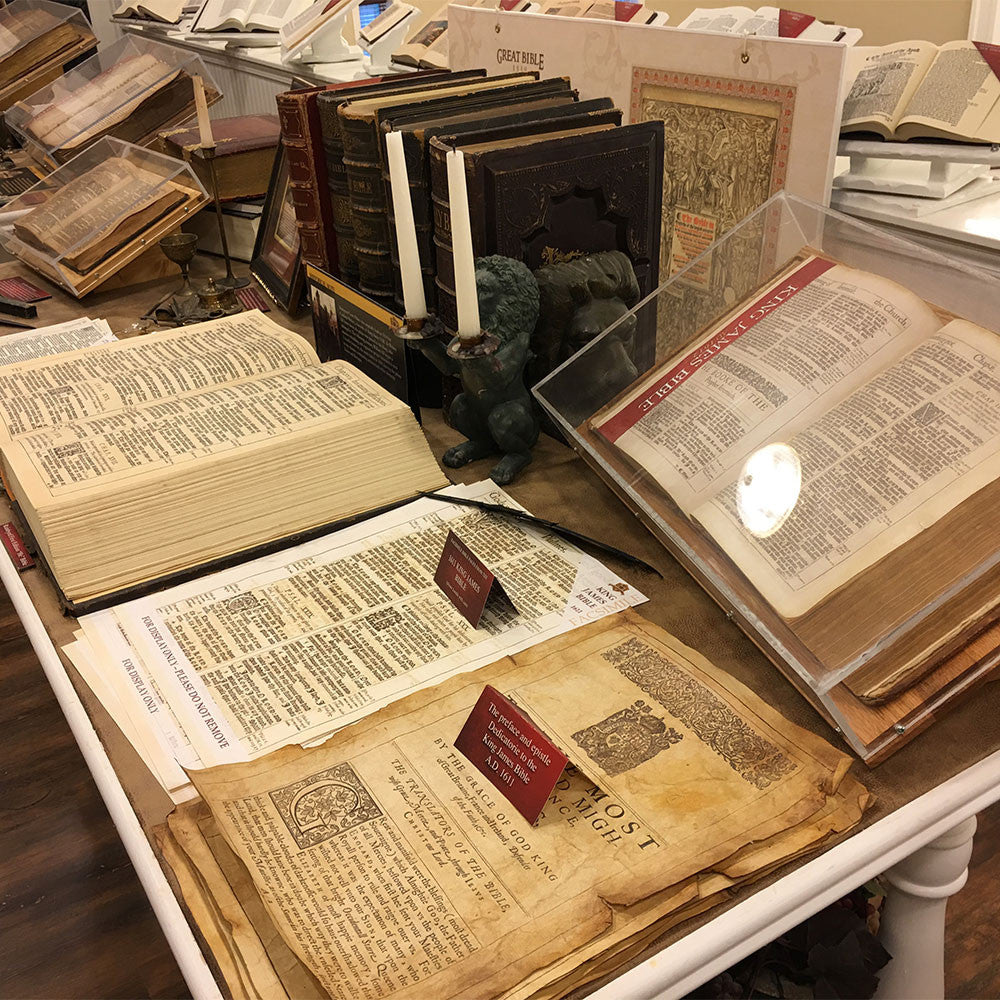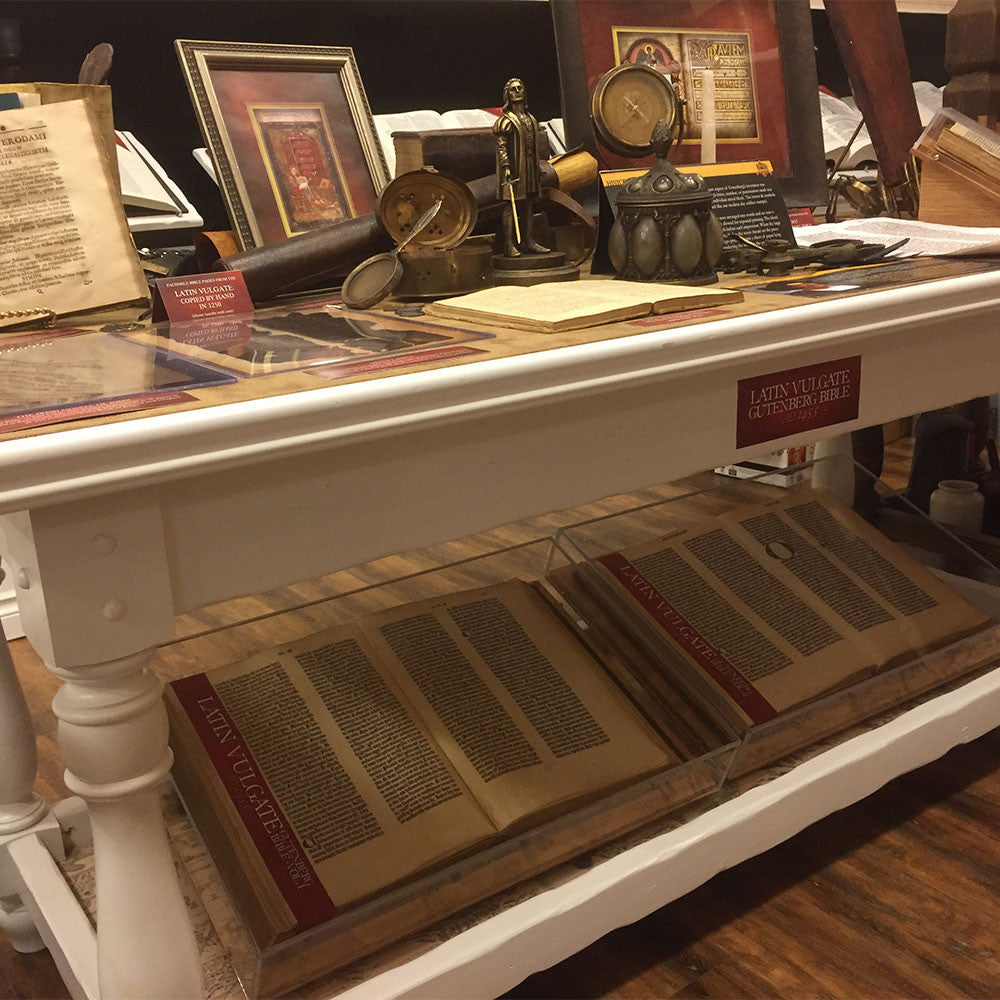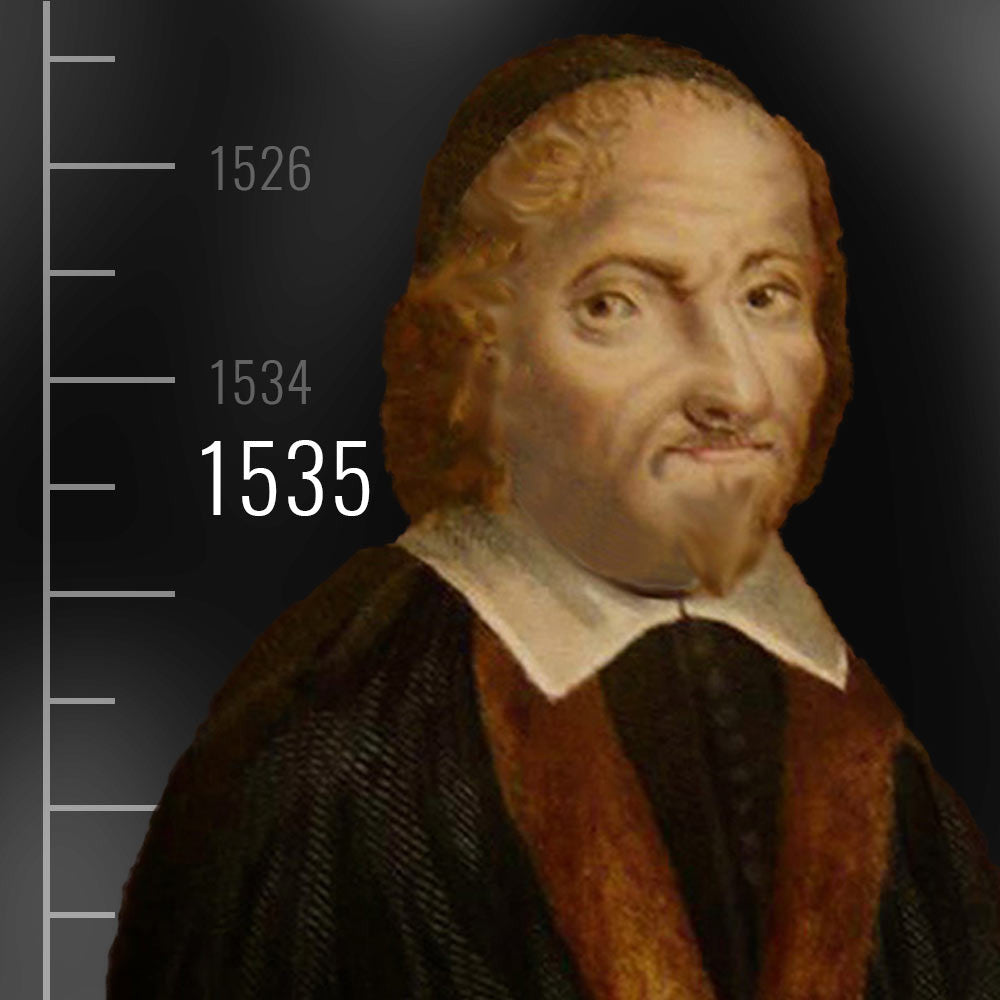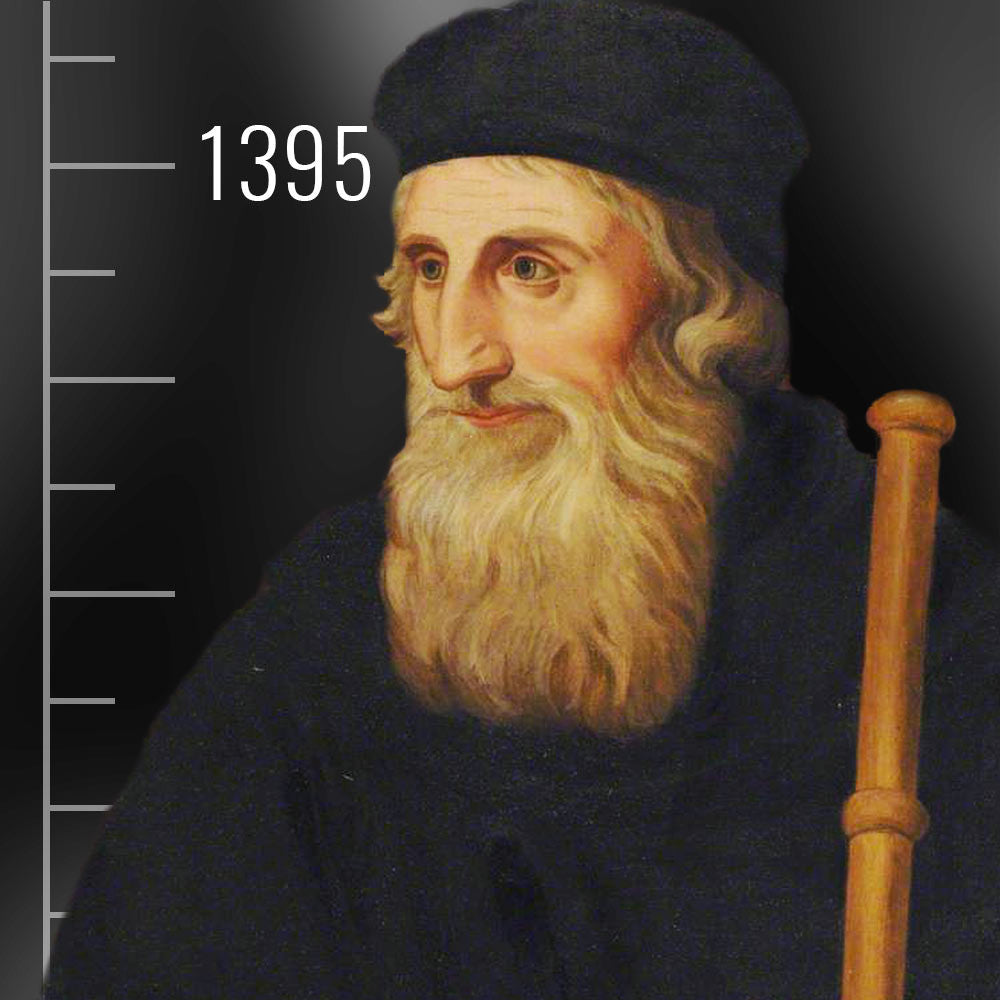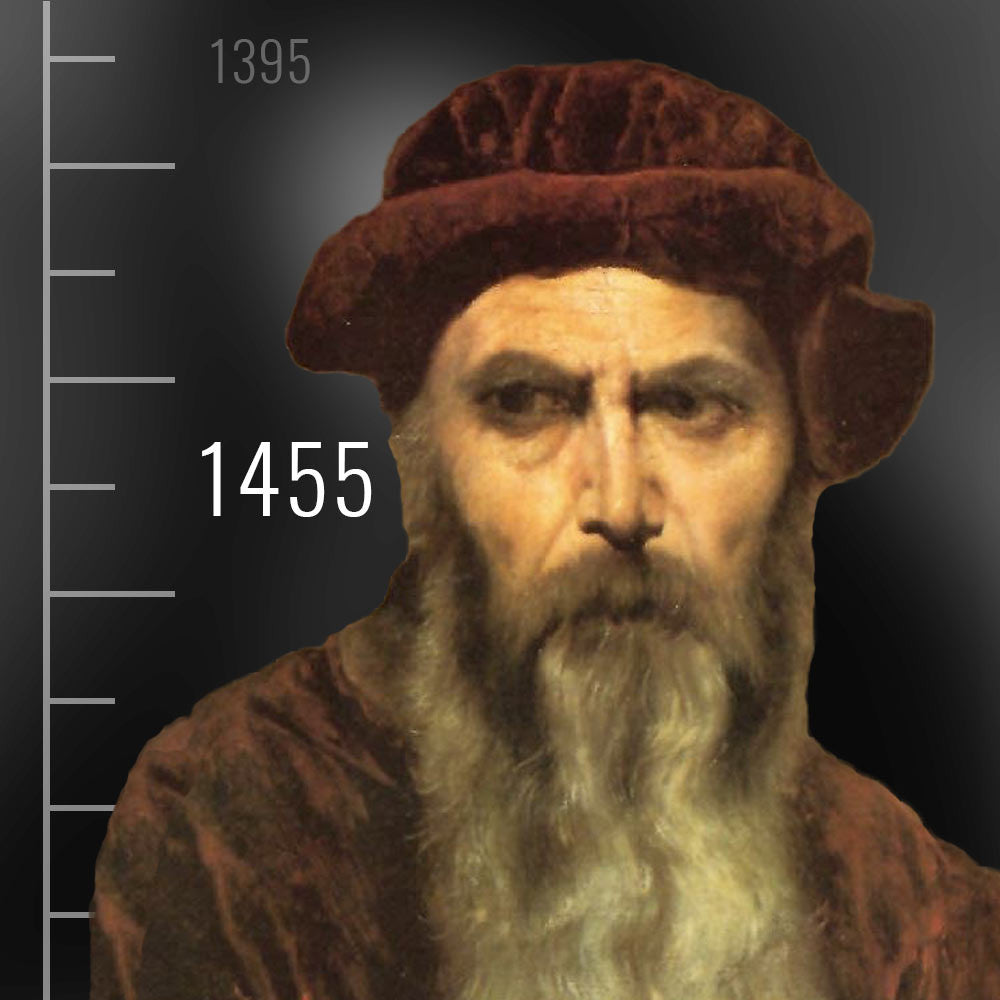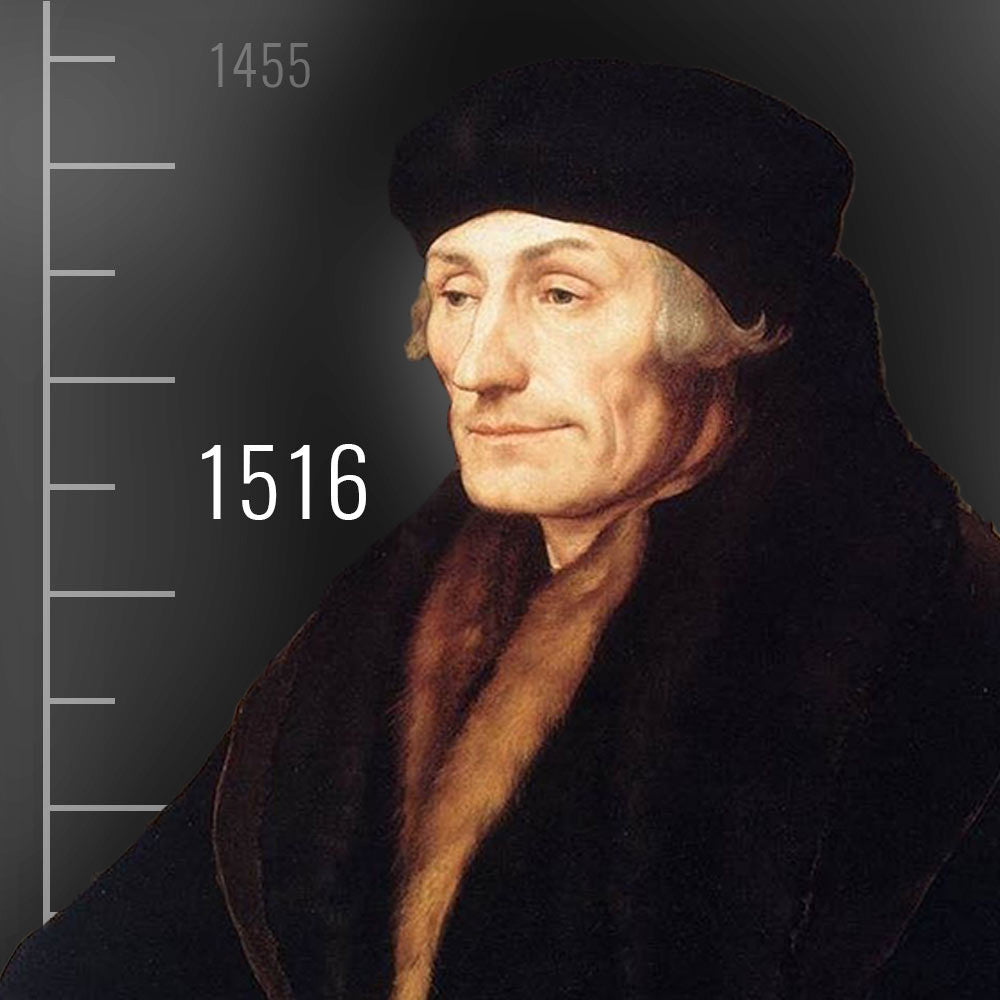Miles Coverdale was born in 1488 near Middleham, Yorkshire, England. He studied philosophy and theology at Cambridge University, where he graduated Bachelor of Canon Law. Coverdale was ordained into the priesthood in 1519, and shortly thereafter entered the convent of Augustinian friars, where he was most likely influenced in favor of Protestantism by Robert Barnes, an early follower of the teachings of Martin Luther. When Barnes was later tried for heresy in 1526, Coverdale went to London to personally assist in preparing his defense. Not long after the trial, Coverdale left the convent and committed himself entirely to the ministry of preaching and the study of Reformation theology. Coverdale's extensive Bible knowledge and skillful proclamation of its truths compelled him to publicly oppose many of the religious practices perpetrated by the Roman Catholic church -- practices that clearly found no Scriptural support, but rather papal prescriptions such as transubstantiation, sacramental confession, Mariolatry, indulgences, and Purgatory. Mounting persecution and the threat of imprisonment forced him to flee in exile to Europe.
During his exile, Miles Coverdale worked with William Tyndale and a few others on Tyndale's translation of the original languages of Hebrew, Aramaic, and Greek into English. Tyndale had completed the first edition of the New Testament in English in 1526, and by the time Coverdale joined him, over 50,000 copies had been printed and distributed despite the condemnation of Henry VIII, the Roman papacy, and the Church of England. Much of the Old Testament had already been translated by Tyndale from the Hebrew, but after he was martyred in 1536, Coverdale -- aided by John "Thomas Matthew" Rogers, whom Tyndale had entrusted with the manuscripts of the present work -- then accelerated the work of completing the whole Bible.
From 1528 to 1535, Coverdale labored to finish his compilation of the Old Testament, which was then published by Jacobus van Meteren. In the same year, the Coverdale Bible, the first complete English Bible, was printed. The previous year, Coverdale had published Dulichius's Vom alten und newen Gott and his own Paraphrase Upon the Psalmes. In 1535, Coverdale also published the first English hymnbook, Goostly Psalmes and Spiritual Songes Drawen Out of the Holy Scripture, for the Comforte and Consolacyon of Soch as Love to Rejoyse in God and His Worde. Many of Coverdale's translations were also used in the 1537 publication of the Matthew's Bible. In 1538, Coverdale moved to Paris, where he supervised the printing of the Great Bible, a dual-language Bible in which he compared the Latin Vulgate with his English translation. Coverdale's English New Testament was published in London and Paris, and unlike Tyndale's translation, Coverdale chose to translate from Latin, not Greek.
In 1539, Coverdale returned to England, but because of the execution of his close friend and protector Thomas Cromwell, was compelled to return to exile once again. In 1540, he worked on the final translation work for the Cranmer Bible while living at Tubingen, where he also earned his doctorate while serving as Pastor and schoolmaster at Bergzabern. Coverdale wrote extensively, translating numerous tracts and study materials. After the death of King Henry VIII, Coverdale once again returned to England, where he enjoyed much favor under King Edward VI, spending most of his time at Windsor Castle as the King's chaplain. In 1551, Coverdale became Bishop of Exeter, but after the succession of Queen Mary (best known as Bloody Mary) in 1553, he was deprived of that position and imprisoned. At the pleading of the King of Denmark, whom Coverdale had been acquainted with during his time in Germany, Queen Mary allowed for his deportation rather than his death. After his return to Bergzabern, Coverdale continued his translation work until the reign of Queen Mary ended, then at the invitation of the King he returned to become rector of St. Magnus' near London Bridge until 1566. Miles Coverdale died a short time later, in 1568.
Coverdale was one of the most effective preachers of his day, helping to lead the progress of the Reformation as a contemporary to many of the great Reformation preachers. His excellent knowledge of German and Latin, as well as his understanding of Greek, Hebrew, and French, greatly aided Coverdale in his translation work, and provided many opportunities for him. As a result, Coverdale had a part in the publication of more editions of English Bibles in the 1500s than any other man -- his work with Tyndale on the Bible, his Psalms and Latin English New Testament, the whole Bible translation which bears his name, the Matthew Bible, the Great Bible, and a host of other publications which bear his mark or his name.

